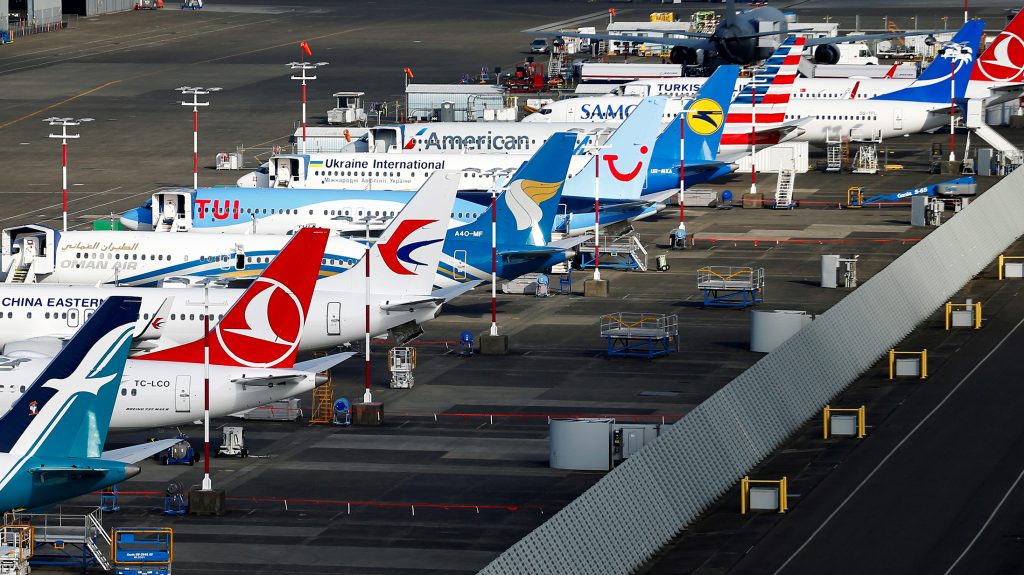Catholic leaders said a Trump administration plan to limit the issuance of immigrant visas for people from six African and Asian nations "undermines family reunification" and will make it more difficult to support migrants forced from their homeland.
"We note with particular sadness and have witnessed firsthand the trauma of family separation that occurs with travel bans, which will only increase with this new proclamation," officials with the U.S. Conference of Catholic Bishops and three Catholic agencies that work widely with migrant families said in a Feb. 2 statement.
Joining in the statement were leading church voices on migration and immigration: Archbishop Jose H. Gomez of Los Angeles, president of the USCCB; Auxiliary Bishop Mario E. Dorsonville of Washington, chairman of the bishops' Committee on Migration; Bishop Joseph C. Bambera of Scranton, Pennsylvania, chairman of the bishops' Committee on Ecumenical and Interreligious Affairs; Bishop Jamie Soto of Sacramento, California, chairman of the board of Catholic Legal Immigration Network Inc.; Dominican Sister Donna Markham, president and CEO of Catholic Charities USA; and Sean Callahan, president and CEO of Catholic Relief Services.
Beginning Feb. 22, immigrant visas that allow people to live and work permanently in the U.S. will be restricted for foreign nationals from Eritrea, Nigeria, Kyrgyzstan and Myanmar, also known as Burma. People from Sudan and Tanzania will no longer be able to enter the U.S. through the diversity visa lottery, which grants green cards to as many as 50,000 people a year.
People seeking immigrant visas in most cases are sponsored by a relative or an employer.
People seeking nonimmigrant visas on a temporary basis for business, tourism, medical treatment and certain types of temporary work are not affected by the policy. Previously issued visas will remain valid under the new plan.
Immigrant advocates in the U.S. said the new policy should not affect religious workers, including missionaries, women religious, priests and seminarians.
In Nigeria, Sister Regina Oke, superior general of the Sisters of St. Michael the Archangel, based in Ado-Ekiti, also said she does not expect the new limits to affect people traveling to the U.S. as missionaries.
"Our works as missionaries over the years have been speaking for us," she told Catholic News Service. "Also we are not into the diversity lottery with a view to migrating to other countries to reside. We work in those countries for a scheduled and specified period of time and return home."
Acting Homeland Security Secretary Chad F. Wolf announced Jan. 31 that President Donald Trump had signed a proclamation placing restrictions on the six countries because they failed to meet minimal security and information-sharing standards for travelers and whether individuals posed a national security threat.
The countries each have substantial Muslim populations. The proclamation's impact on ethnic Chin, Karen and Rohingya Muslims fleeing persecution in Myanmar is unknown.
Thirteen countries now are on the U.S. restricted travel list. Under a policy upheld by the Supreme Court, the administration earlier restricted entry from seven countries to varying degrees: Iran, Libya, Somalia, Syria and Yemen, along with Venezuela and North Korea.
The U.S. issued 7,922 immigrant visas to Nigerians in fiscal year 2018, second only to Ethiopia among African nations. Nigeria is Africa's most populous nation with more than 200 million people.
The Nigerian government responded quickly to U.S. concerns. President Muhammadu Buhar has established a committee "to study and address the updated U.S. requirements," a presidential spokesman said Feb. 1.
The U.S. church leaders said the new proclamation "serves as a painful reminder of the 2017 ban which threatened our country's founding principle of religious freedom."
Since the original ban was put in place three years ago, waivers to allow visas for undue hardship "were almost never authorized," they said.
"We respect that there are challenges in assuring traveler documentation and information exchange between two countries as a means to ensure the safety of citizens. However, we also believe that ill-conceived nation-based bans such as this injure innocent families," the statement said.
"We urge the administration to reverse this action and consider the human and strategic costs of these harmful bans," the statement concluded.
In a separate statement, Bishop Soto, CLINIC's board chairman, expressed concern that since 2017 "families from the countries covered by the original travel ban have been frustrated time and again in their efforts to reunite with loved ones."
"The administration's promised waivers for humanitarian travel are all but nonexistent," Bishop Soto added. "Adding more countries to this shameful policy will serve only to keep more families stuck on opposite sides of the globe from each other."
At least one other leader of a faith-based immigration agency expressed concern about the administration's expanded restrictions.
"This policy has been devastating to thousands of men, women and children whose only beacon of hope is the safety and prosperity that America can offer," said Krish O'Mara Vignarajah, president and CEO of Lutheran Immigration and Refugee Service. LIRS is one of the largest refugee resettlement agencies in the nation.
"How can we look at ourselves in the mirror knowing that we are doing less and less, especially when an unprecedented global refugee crisis calls for swift, bold action from the world's humanitarian leader?" she added in a Jan. 31 statement.
Wolf said the agency's officials would work with the countries on bolstering their security requirements to help them work to get off the list.
"These countries for the most part want to be helpful, they want to do the right thing, they have relationships with the U.S., but for a variety of different reasons failed to meet those minimum requirements," Wolf said.
Contributing to this story was Peter Ajayi Dada in Lagos, Nigeria.

